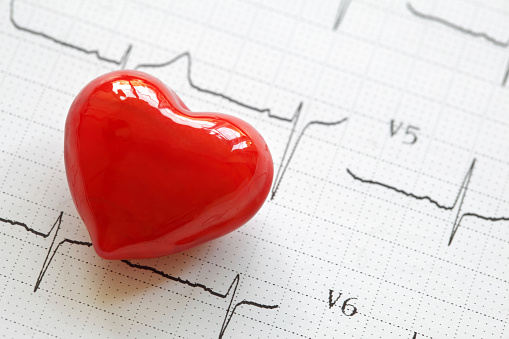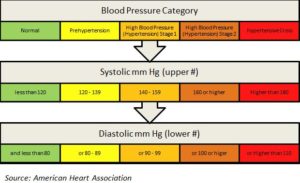Do The Numbers Make Your Heart Beat Harder?

By Martie Moore, RN, MAOM, CPHQ | February 3, 2017
Numbers are usually associated with a performance or actions that have a form of measurement. Athletes receive numbers for the fastest run or highest jump. Drivers receive speeding tickets for surpassing the posted number. Sport scores, being pulled over for a speeding ticket, or exercising, all make our hearts beat harder.
Yet numbers are often being ignored. One in four Americans has undiagnosed hypertension.¹ Many nurses are within those statistics. Nurses often sacrifice their own health as they care for others. Last year, Medline donated more than $60,000 to the American Heart Association in its mission to fight heart disease. Medline is working with AHA again, along with the American Nurses Association to touch the hearts of nurses, and others, to change their numbers for the better.
Do you know where you sit in the numbers?
When was the last time you checked your numbers? Don’t be fooled by a blood pressure that you’ve been told has “always been good.” Well, I’ve been there. I am one of those nurses whose blood pressure changed silently. I argued with my physician that I have always had excellent blood pressure readings, and her numbers were wrong. I made her take it five times, and then negotiated a 30 day trial to see for myself whether the readings were an aberration. The numbers were not, and it was my wake up call. High blood pressure can lead to stroke, heart failure or heart attack. 
A 2009 Danish study found female nurses who felt pressure at work was too high had an increased risk of ischemic heart disease than those who felt work pressure was fine.² Years after that study, another one looked at our behaviors and lifestyle and their impact on our health. All nurses were at some risk for different health issues, but night shift nurses identified living with hypertension as one of their main concerns.³ As for women, heart disease and stroke cause 1 in 3 deaths among women each year.4
For me, it’s time to change my sodium intake, time to get up and time to move. It’s time to monitor and know my numbers. This is your time, and what better time than the month of February as it’s American Heart Health month. Know your numbers. Don’t make your heart beat harder. Know where you sit in the numbers.
1. Get The Facts About High Blood Pressure, http://www.heart.org/HEARTORG/Conditions/HighBloodPressure/GettheFactsAboutHighBloodPressure/The-Facts-About-High-Blood-Pressure_UCM_002050_Article.jsp#.WIY1glMrK70, American Heart Association, Reviewed October 2016.
2. Psychosocial work environment and risk of ischaemic heart disease in women: the Danish Nurse Cohort Study, http://oem.bmj.com/content/67/5/318.full, Occupational and Environmental Medicine, Accessed October 28, 2009.
3. Nurses’ lifestyle behaviours, health priorities and barriers to living a healthy lifestyle, https://bmcnurs.biomedcentral.com/articles/10.1186/s12912-014-0038-6, BMC Nursing, Published November 28, 2014.
4.Fight Heart Disease, https://www.goredforwomen.org/fight-heart-disease-women-go-red-women-official-site/about-heart-disease-in-women/facts-about-heart-disease/, Go Red For Women.
Martie Moore, RN, MAOM, CPHQ
Chief Nursing Officer
Martie L. Moore, RN, MAOM, CPHQ, is the chief nursing officer at Medline. As CNO, Moore develops forward-thinking, solution-driven clinical programs, as well as new products and educational services. Prior to joining Medline, Martie was the chief nursing officer at Providence St. Vincent Medical Center in Portland, Ore. Under her leadership, Providence St. Vincent earned a third and fourth designation for Magnet.
